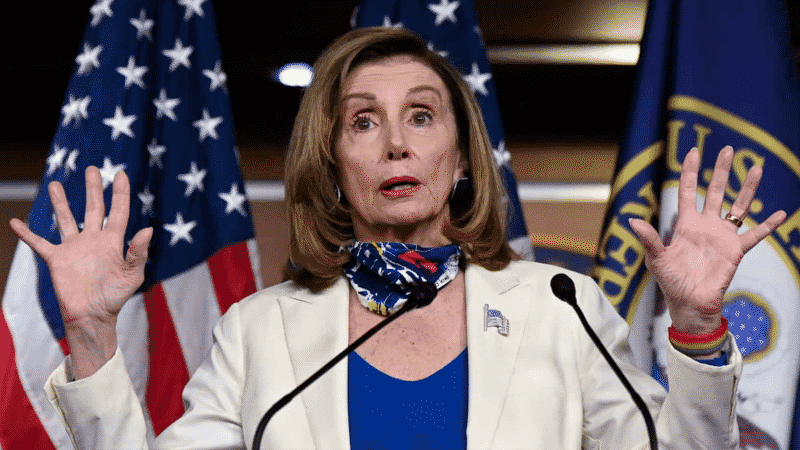House Speaker Nancy Pelosi (D-Calif.) is headed for another term as the most powerful political figure in the House of Representatives. The 80-year-old San Francisco lawmaker secured her party’s nomination for speaker during leadership nomination meetings this week and she is running unopposed.
Pelosi still has to secure the votes on the floor of the House in January after the new Congress is sworn in.
Democrats in the House will have a narrower majority than they did previously. Republicans managed to pick up a number of seats, closing the gap between the parties.
Pelosi was also the speaker of the House under President Barack Obama from 2007 to 2011. She lost the gavel that term when the Republicans took over control in the House in 2011.
Following the 2018 blue wave that secured the Democrats’ majority, Pelosi faced some opposition from other members hoping to take the gavel. But Pelosi fended off the challenges.
During her last leadership battle, Pelosi committed to serving only two terms as the speaker — meaning that she has already pledged that the session that runs from 2021 to 2023 will be her last as speaker of the House.
Fifteen Democrats voted against Pelosi as speaker in 2018, many of them were moderates in tough districts and some of those members like Reps. Max Rose (D-N.Y.) and Joe Cunningham (D-S.C.) lost their reelection fights in 2020. Rep. Jeff Van Drew (R-N.J.) voted “present” — Van Drew has since switched his party loyalty, pledging “undying support” to President Donald Trump. Van Drew won reelection in 2020 as a Republican.
House Democrats will also nominate the other top members of their party to serve again in their current posts — Rep. Steny Hoyer (D-Md.) as House majority leader and Rep. Jim Clyburn (D-S.C.) as majority whip.
In the Senate, the leadership will also remain the same. Senate Republicans reelected Sen. Mitch McConnell (R-Ky.) as majority leader and Senate Democrats reelected Sen. Chuck Schumer (D-N.Y.) to lead their caucus.
























